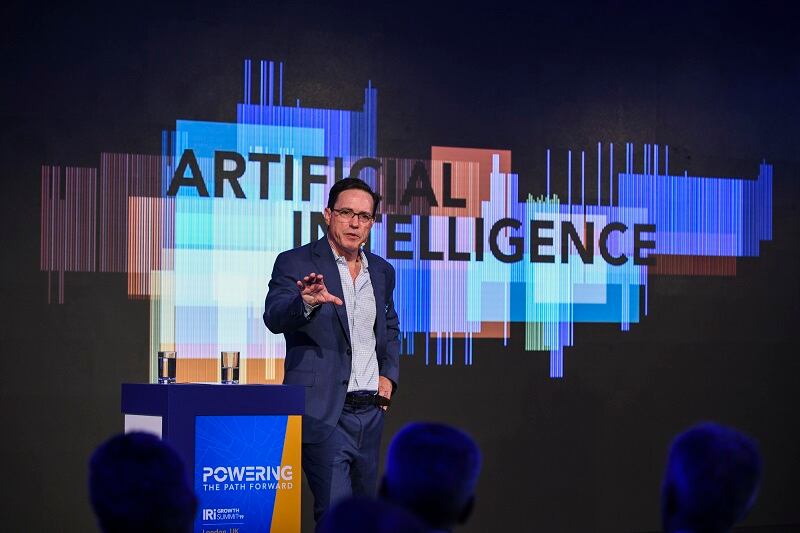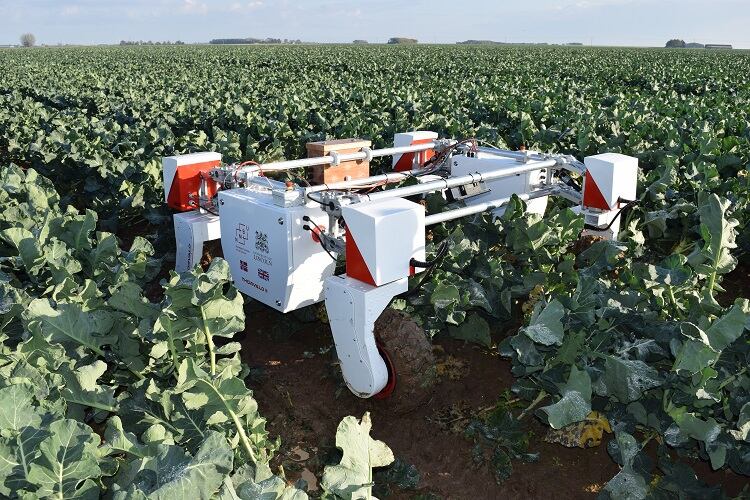Andrew Appel told the IRI Growth Summit in London that changing consumer needs, the evolving retail environment and the complexity of personalisation meant that investing in data infrastructure and artificial intelligence (AI), as well as voice and machine learning, was essential to drive growth.
“The next generation of consumers are going to be much less predictable and much less loyal than the last generation. Serving that consumer tomorrow is going to be very different than serving that consumer yesterday,” he said.
He added: “Amazon’s goal in the US is two-hours to deliver groceries in a large number of US cities and they are building the physical infrastructure to do that. When they think about the consumer of the future, they think about zero-time delivery.”
He noted: “It used to be that the big eat the small. Now the fast eat the slow. The question to us is how can the big become the fast? Because if we look at our industries in CPG and retail right now the smaller companies are outgrowing the larger companies and the smaller ones are bringing the innovation.”
AI at a ‘tipping point’
IRI has invested more than £1 billion in technology over the last few years to develop solutions aimed at helping companies improve their decision making. Its retail clients include Waitrose and M&S who use IRI to access data on customer behaviour.
Appel added: “AI is at a tipping point; fewer than 50% of European companies have so far adopted it, yet studies in such areas as demand forecasting and media ROI show it can deliver 10% incremental growth.”
IRI has launched two new products promising to provide firms “augmented decision-making”. The IRI Opportunity Finder uses complex algorithms that identify to companies potential competitive gaps.
Meanwhile, the AIRIA (Artificial Intelligence Reporting and Insights Assistant) is voice activated. Clients could ask questions via a mobile phone, PC or smart speaker and ask questions such as ‘Is my pricing aligned to share goals?’ ‘How is my assortment compared to the rest of market?’ ‘Am I converting shoppers and capturing share of wallet?’ Are my items promoting more or less effectively compared to prior periods?’
A key benefit for both tools was speed, according to Appel. AIRIA can deliver back the results of complex queries within seconds, while the Opportunity Finder can cut the time spent by insights teams, for example, churning through terabytes of data from a few days down to a matter of hours, he said.
“We see an unprecedented opportunity to change our industry and we have a mission to help make you faster, smarter and more effective by delivering profitable growth and consumer relevancy by leveraging data analytics and technology.”
‘Democratizing insights’
Ash Patel, IRI’s chief information officer, added that the company wanted to make these tools available to the 'average user' not simply the 'analyst or expert in an office who provides analysis to executives.'
“That’s anybody in an organisation down to someone stocking shelves at the retailer or the truck driver delivering food to stores,” he told FoodNavigator. “An individual in store operations at a retailer might be able to ask ‘what are the top out of stock on shelf opportunities at this store?' And it [would then] personalise an answer of a recommendation of which products they need to stock on their shelves in priority order to recover the most amount of lost sales.”
He added: “We view it as our role serving our clients across FMGC and retail and food innovation to help them drive along that journey to make better decisions faster and be broadly done across the organisation.”
Expanding on the capabilities of this technology, Patel said data analysis was moving from a product-view to a consumer-centric view of analysis, which allows companies such as IRI to see detailed behaviour at the individual consumer level.
“From the FMCG side artificial intelligence and machine learning is really key to identifying early patterns,” he said. The classic example, he explained, was yogurt: a mature item sold in stores for many years, but which over time has witnessed a “slight variation of attributes and flavours”, best illustrated in US at least by the success of a brand such as Chobani. However, this shift in consumer preference would not have been picked up by traditional analysis at the product level, according to Patel, which would have simply revealed reasonably flat yoghurt sales.
“But if you go deeper and analyse it by attributes of that category like Greek or by particular flavours you’d see there was a tremendous shift of who the winners and losers were in the overall category. So for brands, using AI and machine learning to mine data points offers an opportunity to create hypotheses and recommendations that large teams of analysts wouldn’t have time to get to.
“The machine can simply evaluate more combinations of ‘white space’, where there is an innovation gap, much more thoroughly than even small army of people can.”
Mass personalisation of the future
Patel added that the consumer adoption of this kind of technology “has been far in excess of what the retailers and the FMCG have done and they have a bit of catching up to do.” So much so, that he envisioned a scenario in the near future where the bid/auction model of sectors such as travel and tourism might be applied to the retail or FMCG space.
“When you go to the store at present the burden of finding the most cost-effective basket is on the consumer,” he explained. “I think in the future the consumer will have even more control of their basket. They will put out what they are willing to purchase on a weekly basis and the retailers and even the brands directly will compete for their portion of that basket by bidding what they are willing to sell that product for. That’s where I see the ultimate future of mass personalisation.”





